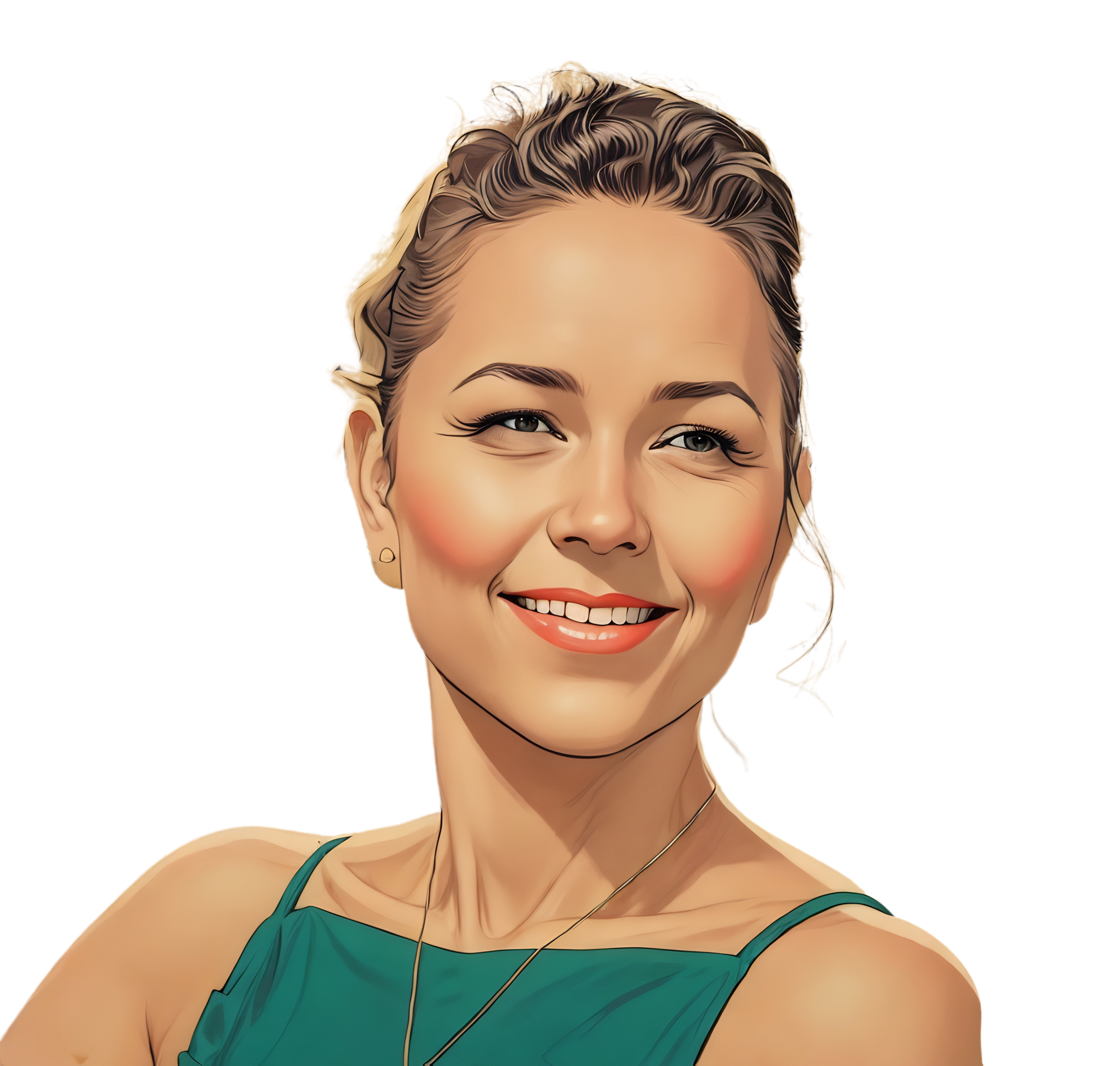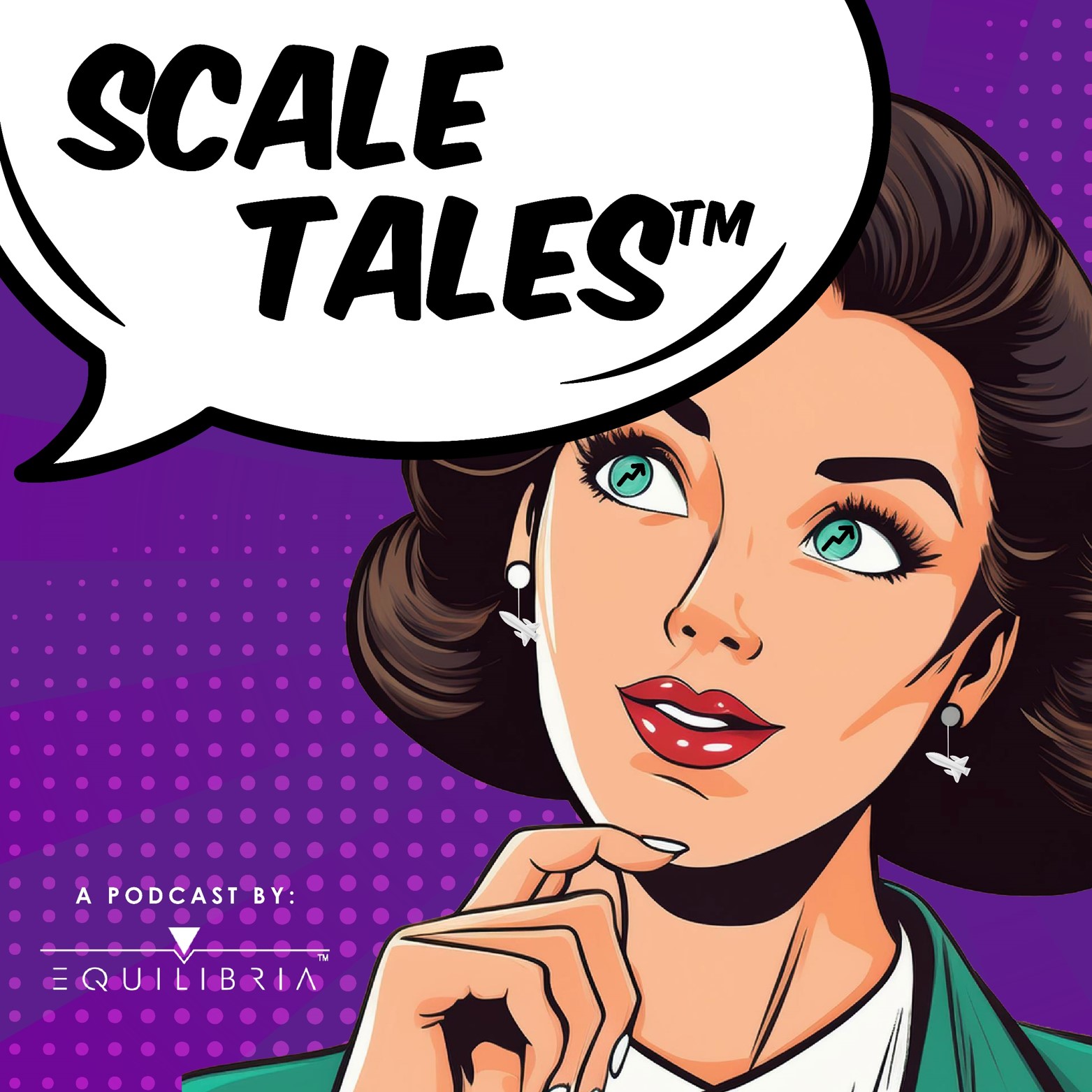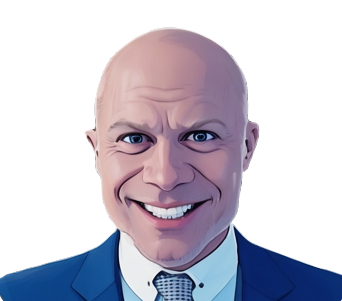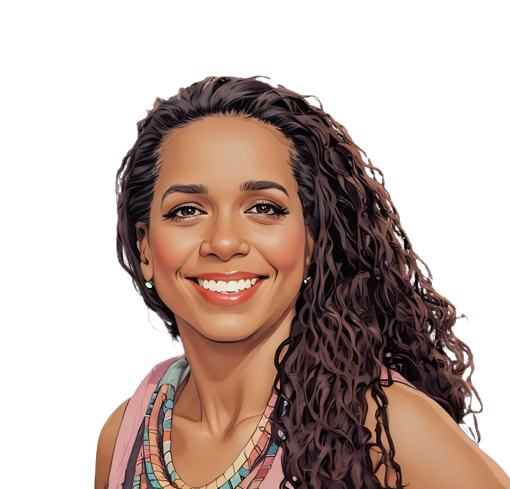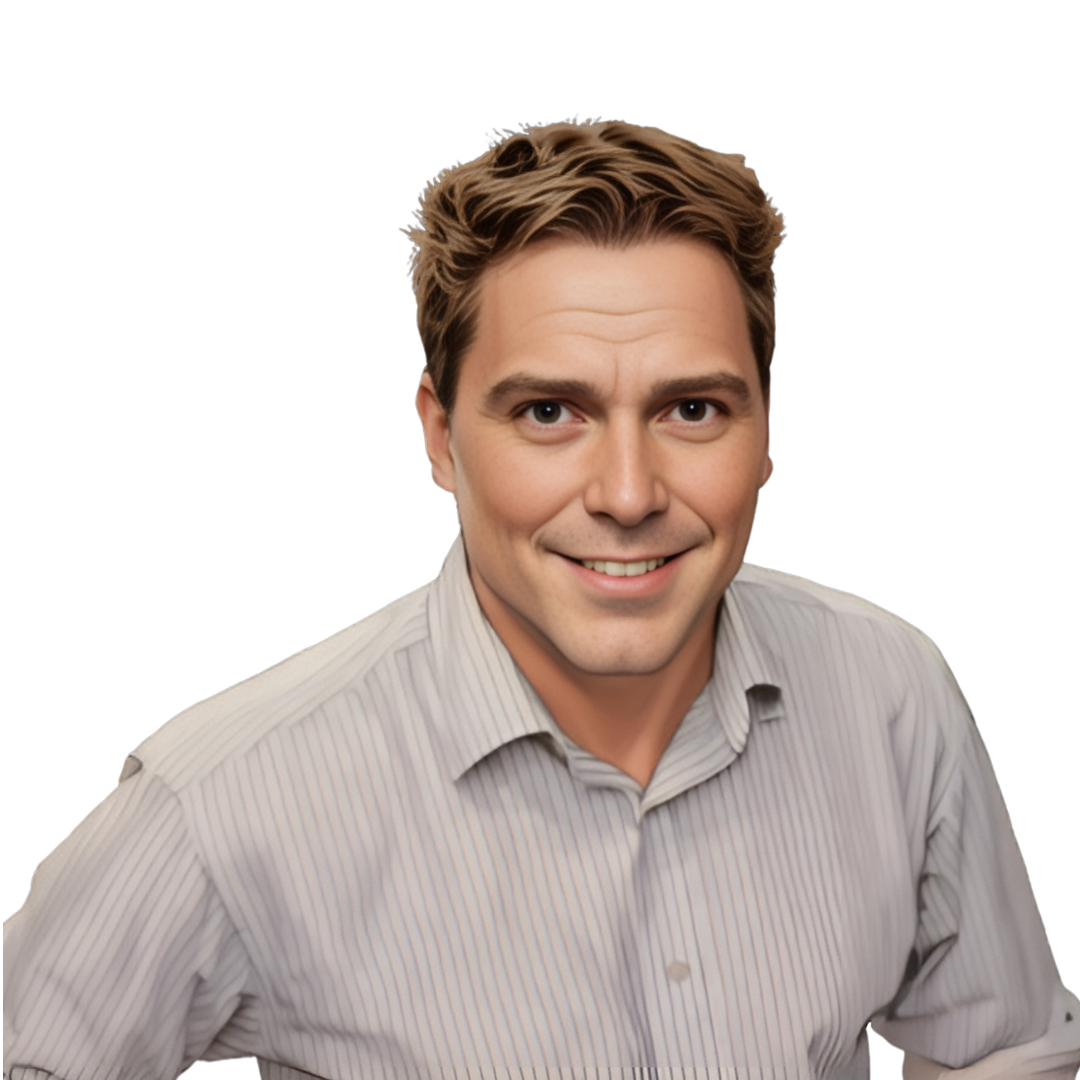Transcript
This episode is brought to you by Equilibria, Inc. Equilibria provides training to assist fast-growing companies in documenting and improving their key processes for maximum operational performance. Visit EQBsystems.com to stop the chaos of fast growth and start flowing today! EQBsystems.com.

Welcome to Scale Tales – the business storytelling podcast where entrepreneurs, executives and experts share firsthand accounts of those magical moments when they achieved something bigger than even they could have imagined.
I’m Alicia Butler Pierre. I was watching a video that showed an old interview of the famous psychiatrist and psychologist, Carl Jung. He said something that really made me pause and reflect. He said, “The single greatest danger to man is man.” In other words, collectively, we pose the greatest threat to humanity. Our next guest is someone who is on a mission to do her part in combating the threat we pose to the environment. She’s created a marketplace that enables procurement power of those who are more
fortunate to empower those who are less fortunate.
This is Ep. 22: How Tali Goldman Impacted 3,000 People in One Year through a Sustainable Marketplace.
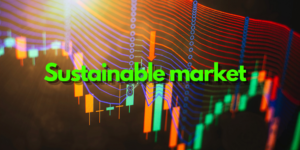
Hi, I’m Tali Goldman, I’m the managing director of Market for Good. I’m currently in Singapore and this is my scale tale.
It all started in June 2021 when we launched Market for Good, the first B2B marketplace for sustainable impact in Asia showcase product and services are done by charities, not for profit. Social and environmental organization created a stage for all of them so they can show the product and services, creating a bridge between them and large corporate to utilize the procurement power to really empower.
But let me go back to where it really started. It actually started about a decade ago when I was pregnant with my second child and I knew that I wanted to do something different. I wanted to be there, I wanted to breastfed my child and see her first steps and I wanted to give this
opportunity for myself and I wanted to give this opportunity for other women. And this is where my first idea came for innovative gift solution for corporate because there was a gap there and I knew that I can offer something that is unique and different and I could hire other women, young women that back then were my age with very young children that needed this flexibility and this was the platform.
So we all worked and we could have this amazing balance between being a present mother and fulfill ourselves in the other terms of career. I was recognized after a very short time by the Singapore government as a social enterprise by creating this platform. And then they asked me if I can give this opportunity to women in Singapore that are more innate like single mothers, low-income families and of course, I said I’d love to. And I started to hire women from very low income families and very short after they chose my company Market for Good and myself to help 48 charities.
So the government created a project called Heart Gifts and they put under one umbrella, 48 charities in Singapore with a very smart idea that says every time we purchase something, let’s purchase from our own community. And by doing so we’ll empower our own beneficiaries. When I say beneficiaries, I talk about people with physical disabilities, mental disabilities, ex offenders’ families, single mother, low-income families and families with children with disabilities.
So my project was to take all those different charities and give them a stage. And I started to meet with each one of them and I was inspired by the impact that each one of them is doing and how much they are important for the beneficiaries. And I started to learn and understand what each one of them can do. Some of them could do drawing, for example. Some of the women after accident couldn’t move, but they could draw with their mouth and fist. And some of them with mental disabilities that could do something…drawing and other organization in Singapore, it’s called Savite People for the Blind.
Organization for blind people that could do different kind of stickers and stamps on different plates. Each one of them were doing amazing things. And I was thinking to myself, when I meet a corporate client and I work with large multinationals, banks and hotels how do I convey all this message and how I can help them when they need something? How can I direct them to so many products? My organization back then was called Daggies and I already had a deck of 150 pages on different subject and now I have another 48 charities. And I thought to myself, how do I do it?
I started to look for solution like Alibaba and some other B2B platform. The big challenge was it was expensive. You either had to pay to register or to be able to be there. Like when you search to be in one of the first pages or you need to create a product and send them overseas, which is very expensive and if they don’t sell well, you start to be fined. So it was really challenging. We couldn’t find a solution. And I had this responsibility that I took on myself to help so many. I’m talking about 50,000 beneficiaries in Singapore under those different organizations.
It came to me I said, “Okay, I have to create it.” Let’s create. I did a survey with my clients and I said which name should I give it? And everybody most liked Market For Good because it’s a market to do good. I remember buying this name. It was an expensive name, but I said, “Okay, it really benefits us for the long term.” And in June 2021 during the pandemic we launched Market for Good. I remember the first target of serving the first 20 charities is to market for good.
Tali didn’t find an affordable, off-the-shelf solution to assist these charities and their beneficiaries, so, like a true entrepreneur, she created her own. She legally registered Market for Good and worked with a team to develop this new digital marketplace. But, Tali admits, it didn’t come without problems.
Of course with every new solution platform you always have so many bugs and so many challenges. I have masters in system engineering. So I could really understand the backend. So I took some months till we stabilize. And during 2022 we started to add more and more and more product and services for corporates.
We reach about 10,000 product till end of 2023. And till that moment, every product had the SDG (Social Development Goals) that it supported. The idea is that corporate have huge budget. Corporate gifting budget worldwide is a trillion-dollar market. It’s about 1/3 in US, 1/3 in Asia and 1/3 in Europe. When we’re looking at employee engagement activities, companies spend about $3 billion. When you look at amenities of hotels, another $50 billion market.
So it’s a huge market. And the idea is how we shift this market into really create an impact, really empower people and as much as possible protect the environment. What do I mean? Empower people is creating for them the fishing rod, not giving them the fish, creating for them a system where they can actually show the product so we give them the fishing rod and we create the lake, the kind of sea for them to fish from because companies can come and go to the system
and choose for them.
So we showed the SDGs and I was very happy. But with the change that is going globally, understood it is not enough. And maybe because I’m an engineer and I really like quantification, it was important for me to show…you cannot only say you do good, you really need to quantify the good. This is where we started to see how we quantify social impact, how we quantify environmental impact, not only carbon emission.
Environmental impact is a bit easier because carbon emission is already very developed. And we had our own carbon emission calculator as well. You look at the biodiversity, energy consumption, water consumption, waste management. But social impact is more fluid, it’s not tangible. It took us about a year and a half to two years of research and a lot of trial and error of what data can we collect for every product and what data can we show that is very transparent.
So when our clients choose product and services, they can really understand the impact that they are doing to help them really utilize the procurement power to empower, to understand the data so they can actually take it and put it in the different sustainability reporting like BRI, SASB and others.
Tali and her research team set about their mission to quantify and symbolize social impact

We choose a symbol that looks like Ying and Yang and we decided to separate social impact and environmental impact. Because let’s say if we measure the social impact and we give it a score 1 to 10, for example 7 and we have environmental impact, let’s say 1 to 10, 3. If I put them together, you or a client won’t really see anything. And to be honest, some clients really look at only environmental impact and some look at social impact. Which countries of impact? Who do
we impact?
For example, is it children, is it senior people, is it people with physical disabilities and what kind of disabilities? We couldn’t combine those two numbers and average them. So, we kept social impact as a number one to 10 and environmental impact as one to 10. And we put it under the symbol of Ying and Yang with the idea that us globally really need to look at social impact and environmental impact, both of them, to balance both of them.
It’s actually been backed up today by UN research that shows that when you look at the environment and you protect the environment, usually protect the people in the environment, the regional people. And this is what we have today in Market For Good. We collect today close to 100 data points for every product and service. When I say product it’s mainly corporate gifting, it’s amenities for hotels and when I talk about services it can be employee engagement
activities, team building activities.
Everything we offer creates an impact and one can understand the impact and choose the impact. And this is where we are today. Last year our impact report shows that we actually touched the life of 3,000 people. I’m very, very happy and blessed that my team and I managed to create this amount of impact. Our goal is 2 million people. So we are still very, very far from the goal. But we continue doing what we are doing the best we can.
One way Tali and the team at Market for Good plan to expand their reach is by promoting their digital marketplace to large organizations seeking gifts for their employees or customers.
Reaching out to corporate, showing them one by one how they should shift the procurement power to empower buy through Market For Good. Choose gifting that are more sustainable because today we see the global warming and there is so much challenges with manage the waste. And we always encourage them, don’t buy something that nobody needs buy something that creates an impact. Because if somebody received the gift and because of this gift, somebody else was empowered. It’s amazing. And this is what we should do.
I’ll give some example with one of the banks. They wanted a gift for a few hundreds for their VIP clients. And we did for them a beautiful tray. And one of the beneficiaries with mental disabilities in Singapore and the other one in Hong Kong, because they have two headquarters. Their drawing was printed on those tray. And it came with a card of the person and the idea behind it and how it was empowered. We got the feedback from the bank that it’s so empowering for them.
People really love this gift because it’s not another tray that you receive, even if it’s a beautiful tray. It’s something that is so meaningful and unique. And another example I love. I really love to help refugees. I always feel that refugees is like a plant you took out of the soil. And each one of us deserve to have the dignity to support ourself and our loved ones. Helping refugees is really important because they don’t have this opportunity. We help refugees in Malaysia, for example,
a few of the projects that we are doing, we work with them very closely.
They collect plastic from the environment. We pay them hourly. We pay them for the plastic that they collect and for the cleaning. And then we trade them to use some machine. This plastic has been melted to different product. For example, one of the largest hotel in Singapore bought all their coasters from this plastic that was collected from the environment and created by those refugees. By doing so, we have three level of impact. We first create social impact by giving livelihood to those beneficiaries. Second, we collect plastic from the environment.
Everything we dump in the nature, we either eat, breathe or drink it. So it’s really important to collect this plastic. The third level is that we don’t use virgin material, which is always a very key component for us not to use virgin material. And as much as possible to upcycle and recycle material.
In fact, on the Market for Good website, you can see the source materials used for any product as well as a very detailed breakdown of its environmental and social impact and a short story about the person who made the product.
We really explain them about the material, why bamboo is better to use so it’s a lot of education that we do to really help clients choose better. And by doing so, this is our fulfillment. Because our mission, and my personal mission is to empower people and protecting people and environment goes hands in hands. I look at the environment like our extended body. Everything we dump there, we drink, breathe, or eat it so need to protect the environment.
Market for Good is like an Alibaba or Amazon specifically for sustainable and environmentally friendly products and services. I remember Tali telling me when I met her during a visit in Singapore that there aren’t many manufacturing companies there. So naturally I wondered how these hundreds of products currently sold in their marketplace are sourced.
I’m really thankful for this question because it’s really important to understand that we actually started in Singapore, but currently we are supporting charities non for profit environmental and social organization all across Asia and we actually give our services globally. We have multinationals that we collaborate with. We supply their products or the gifting in Europe as well.
Multinational have offices everywhere. So it’s really important to minimize the carbon emission and really elevate the local communities as much as possible. We need to create the products locally. And this is why we have, social organization, I call them social organization put under one umbrella charities, not for profit that are in India, in Malaysia, Indonesia, in Nepal, in Cambodia, almost everywhere, in Philippines.
If a company asks us and we understand where we need to deliver, we try as much as possible to help them to choose a local impact. If they really need the same product that needs to be delivered to other offices, then we’ll have them to choose the product that is more sustainable. We’ll pack it in the most sustainable packaging and we’ll deliver it in the most sustainable way which will be by sea as much as possible.
It’s really here we need to collaborate with the companies and they need to agree with the timelines. It’s really important to emphasize, we don’t have a lot of manufacturing in Singapore we do have about 300 social organization and about 500 charities, but we don’t work with all of them here we actually help companies to create a local impact in the country of the offices where they need the product.
We created Market for Good as real social marketplace. We screen them. We look at the organization on the level of social impact and environmental impact separately. We look at this and when we see it’s something that we would like to offer to our clients, there’s real impact there, then we go back to them, we discuss the product that they’re going to upload to Market for Good.
And then they have to give us close to 100 data points for every product and services and they need to give us this proof of information. So today we don’t have 10,000. We have a few hundreds. It’s growing up a bit slower than before because we do ask for a lot of information. But it’s really important because this information is like their ID card. It really shows what they do.
You can read about the product, you can read about all the data points of social environmental impact, SDGs. And it’s something that we really quantify, and I can look at the mirror and sleep well. I know that every product really shows the impact. We did ask KPMG to look at our quantification tool. We asked at tv, a global company as well to look at our carbon emission calculator. To have a third party that look at the quantification system that we are doing.
Both of those are in process currently. We are Singaporean organization, being audited by the Singapore government. So we currently hold this certification of social enterprise and we hold the certification of Company of Good. So it’s two different body governments that actually checked what we are doing.
This might all sound very rigorous, but when it comes to protecting the environment, you can never be too careful or too detailed about the data being collected. Coming up after the break, Tali will share more about their ability to scale impact as well as revenue for the beneficiaries. She’ll also give some tips for things you can do to become more environmentally conscious.
Some small businesses fail not from the lack of customers, but from too many. When your business receives positive publicity, it’s exciting! The spotlight attracts more customers and the cash flows in. But too much growth too soon can be catastrophic especially if your organization lacks the business infrastructure to support this growth. Behind the Façade: How to Structure Company Operations for Sustainable Success is a book that introduces a proven framework for building business infrastructure. The book is structured into six relatable stories of entrepreneurs who apply this framework, giving you an inside look at how they solve their fast growth issues and how you can too! Pick up your copy today at ScaleTalesPodcast.com. ScaleTalesPodcast.com.
Now that we know how Market for good works,Tali will share an example with us.
Tali Goldman is a fierce defender of environmental sustainability and social impact. Her original vision to create opportunities for mothers who wanted to work from home while raising their children evolved into Market for Good – a global digital marketplace with a bold mission to impact 2 million people. As they continue to attract even larger customers with larger orders, achieving that 2 million is definitely possible. Here’s Tali.
We continue growing, but we need to scale faster for really touch so many people. Today, worldwide, 1 out of 11 lives on a budget of about $2.1 or $2.2 US dollar a day. This is a number that’s been given by the UN. It means that there is so many people in need and there’s so much to do in order to really empower so many of them, to give them sustainable livelihood, to take them out of poverty. This why I’m saying we did a lot, but there is still much more to do.
And as long as Tali and the Market for Good team continue attracting larger customers like banks, they can accelerate their mission to reduce poverty and hunger. Here’s an example of one of their bank customers.
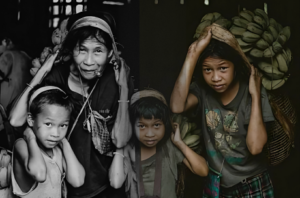
They have 16,000 employees in Singapore, China, Indonesia, Malaysia, Dubai and a few countries in Europe. I really prefer for the person to choose the product or when we receive it, it’s something that is really functional and usable for them. So we don’t create waste. So what we did for this bank is we actually decided together with the management we wanted to tackle this single use plastic that is very, very common even today in Singapore especially in the fast food industry. And what we did is we actually created a landing page for them for them to choose what they would like.
They could either choose a metal cutlery, a bamboo cutlery, or to donate the money to a charity. All 16,000 employees can choose what they want. Each one of them later received this product either at home or at the branches. It was packed by refugees in Malaysia, some of it. As much as possible in Asia, it was our center for the packaging to create an impact.
We delivered by sea the rest and everything came with a card of impact. So the impact is not only because you choose this product, what’s the impact that was created through the design and packaging and delivery, but why those products are more sustainable than others and what for the person we said if you’re using these cutleries for six months, every time that you go for example for a food court instead of single use plastic, this is the impact that you’ll do. So instead of so much plastic waste, use this one.
This will be your impact. And we calculate the carbon emission that they will actually be able to save from. Stop using this single use plastic for at least six months to a year. This is one of the projects that we do. We always share the impact cards so people really can understand and connect to the product and understand why it’s much better than any other product.
These impact cards are an extension of those SDGs or Social Development Goals that Tali mentioned earlier.
We have 17 of them and those have been defined by the United Nation. This is more the terminology that companies use. Those are more trajectory and not targets. So company cannot say I’m doing better in these SDGs, like, you know, fight, for example, poverty, hunger. It’s more strategy of this is what we like.
We like to fight poverty or hunger. B-Corp organization is very popular in the US. They are looking at the supply chain. It’s very good as well. And there are different organizations like BCorp in Asia. It’s a bit less known. We started to have more and more B-Corp certification. It’s another certification an important one because every information that you can get is better to know, that a third party looked at it and it’s more sustainable.
In case you’re wondering how you can procure or order products from Market for Good or get involved in some capacity, it starts by visiting MarketForGood.com.
They can look at the product. The vendor will be notified and they can either purchase directly there or contact us and we’ll help them to understand better and choose the best product, especially if they need deliveries to different location and a few offices.
We’ve all heard about carbon emissions, global warming, and the importance of recycling as much as possible. These are all politically charged topics as well and it can be difficult to discern fact from fiction. Tali explains how we can sift through the noise and better educate ourselves so that we can each do our part to protect Mother Earth.
I look at different levels, so corporate level, and us as individual. Let’s start with individual. To be social and environmental, to look at those aspects…when I, for example, buy shirts, I make sure that as much as possible, it’s organic cotton. I look at the fabric, not polyester, not plastic, as much as possible, because I know how bad it will be for the environment. When I buy any food product or even shop shampoo, conditioner, anything for the household. I always look at the ingredients and I always try to see if it’s fair trade.
I always look at who is the third party. And there are many of them. And it really depends. If you’re looking at clothing, if you look at food, it’s different if you look at any kind of different industry. For example, if I buy chocolate and I wanted to know in chocolate industry that is fair trade and who is checking them. My suggestion is really read the details.
Look at things like in Asia, a lot of is known that is a slavery industry. For example, prawns, everything that is already cut for you. I never buy prawns that are ready to eat, okay? So those kind of things. Chocolate is a very challenging industry as well. So I always look at the supply chain of this product. Always, always.
So we really need to not looking at the marketing side because there is so much noisier. We always look at the other side and read the details. When my daughter was younger, I saw her taking a product in a supermarket. She didn’t look at the ingredients as I told her.
She just saw that is a D. So in Singapore we have A to D. Probably you have it in the US as well or the pyramid that shows how product is healthy in the supermarket. She saw this, she put it back and this is where it’s registered to me that we need to bring this simplicity to sustainability. And this is why we created this score system.
It doesn’t mean that if you have a third-party certificate that it’s amazing. I know about some organization that have a good certification but they take a husky coffee, combine it with plastic and call it a husky cup. Each one of us need to understand and decide if combining plastic with natural material is sustainable or not. You have two sides of the coin. One side will say actually it’s not 100% plastic, which is great. The other side of the coin will say but you took organic material and you combine it with plastic and now it will ever be plastic.
Each one of us can read and choose for ourselves what’s the best. I think the rule of thumb is that everything that is bad for the environment is bad for us and vice versa. When you drink water from a plastic bottle, this plastic was in the sun chemicals went to the water. You drink it. This raw mask more plastic in the environment. WWF said already a few years ago that each one of us drink at the size of a credit card plastic from the water every month.
The responsibility is making sure that we treat the environment as it’s our extended body and everything that we consume it’s less chemical as much as possible, much more natural. This is on the environmental aspect. And on the social aspect what I say and as you said I do been invited to talk a lot. I recommend to buy from charities, from social organization to really utilize each one of us the procurement power to empower. This is the only reason they created Market for
Good – to give those beneficiaries a stage.
They need a stage. They are too small to have marketing budget. They are too small to even sometimes have website but they have amazing, beautiful product that each one of us will buy for them or when we receive a gift from a company we’ll ask them why is it plastic? Why it’s not something that create an impact and because the employees demands or the clients demands. This is what the reason companies start to change and I see it every day.
I do encourage every person to go to market for good, look at the product, understand that everything creates an impact. By purchasing on Market for Good we empower people and we protect the environment as much as possible.
In a world of instant gratification and same day deliveries, expecting to receive products by sea requires patience. I’m challenging myself to become more aware of my impact on the environment and I encourage you to do the same whether it’s for your organization or for one of your large clients. Here’s a recap of some lessons learned from Tali:
- Necessity is the mother of invention and creation. There is a way to protect the environment, solve global problems like hunger and poverty, and make money. You just have to be more creative in your approach and expect to play the long game.
- A great way to show the impact that you’ve provided is by finding ways to quantify or measure results achieved because of your product or service.
- Seek third party validation like a certification program to legitimize your operations as well as your quantifiable results. This not only gives your business credibility but a serious competitive advantage too.
- Consider calculating and reporting a score to simplify the messaging of your product or service. This can ensure mass adoption.
A special thank you to Tali Goldman. Tali, you were warm and welcoming when I first met you and I think everyone who is listening to this will sense your sincerity as well. Tali’s mission is like soup that warms your soul.
You can learn more about Tali and Market for Good in this episode’s show notes available at ScaleTalesPodcast.com. Again, that’s ScaleTalesPodcast.com.
Thank you for listening! If you learned something valuable from this episode, please leave us a five-star rating and review wherever you’re listening.
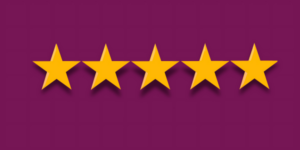
I’m Alicia Butler Pierre and I produced and narrated this episode. Audio editing by Olanrewaju Adeyemo. Music production and original score by Sabor! Music Enterprises. Video editing by Gladiola Films. Show notes by Hashim Tale.
You’ve been listening to Scale Tales, a podcast by Equilibria, Inc.







